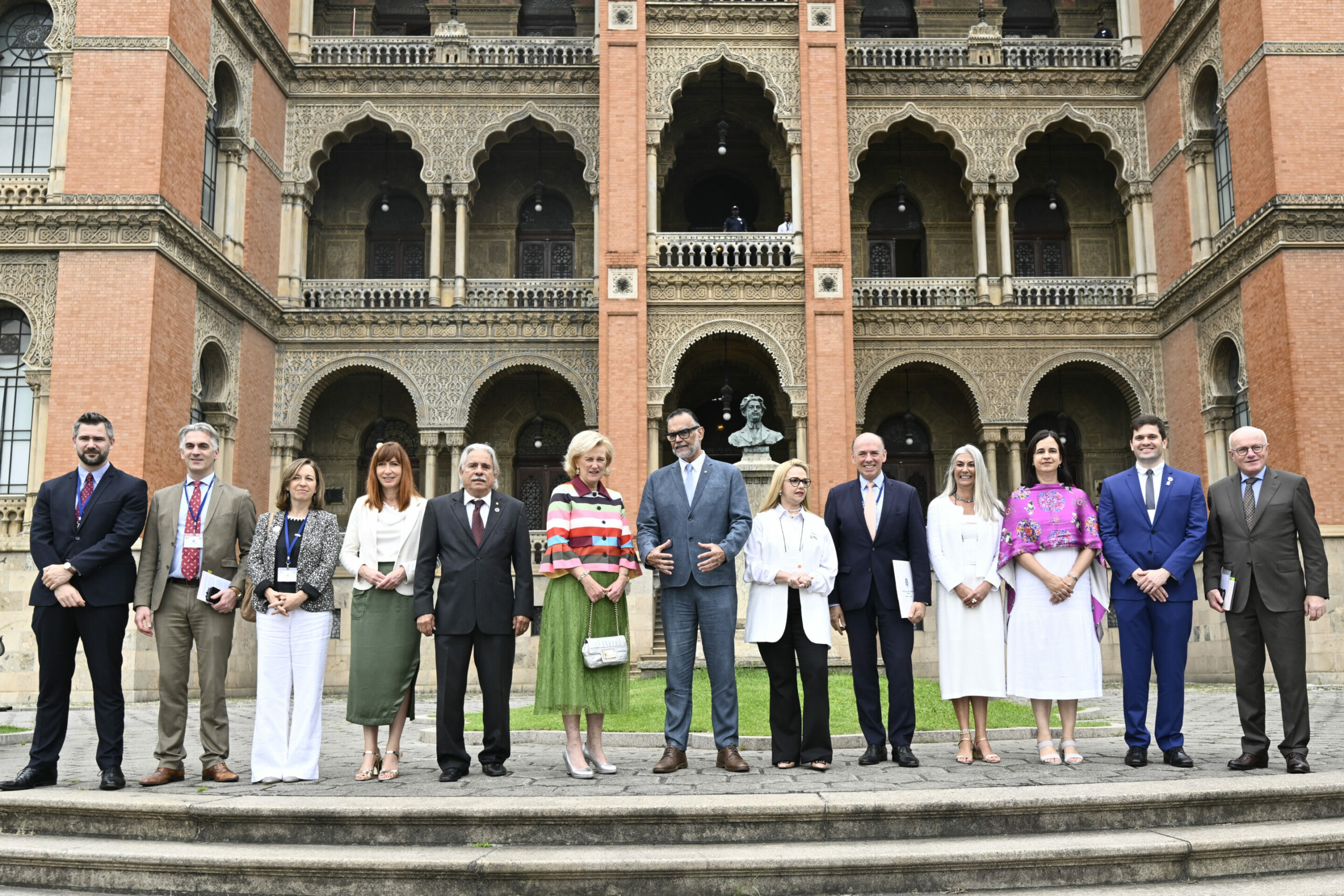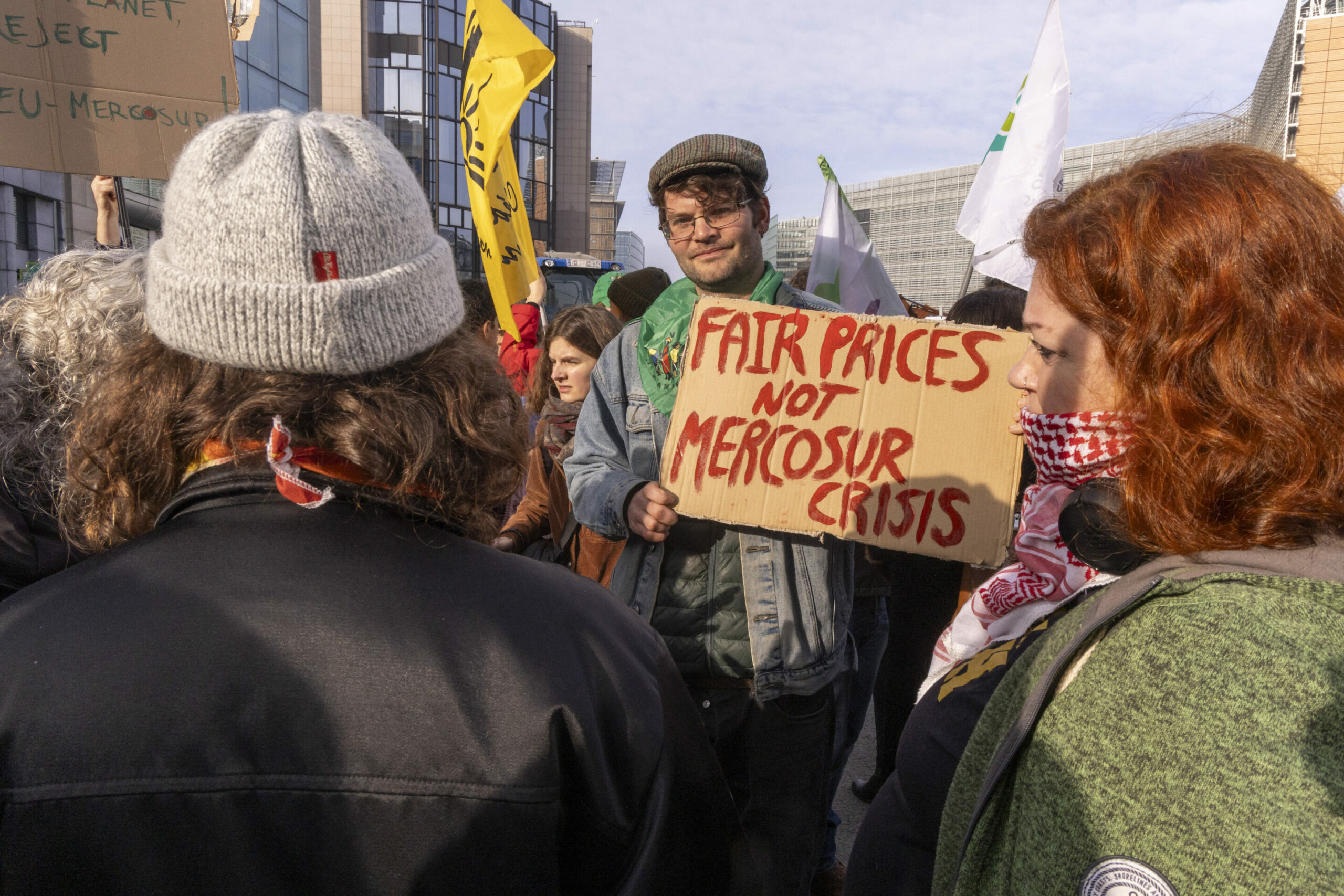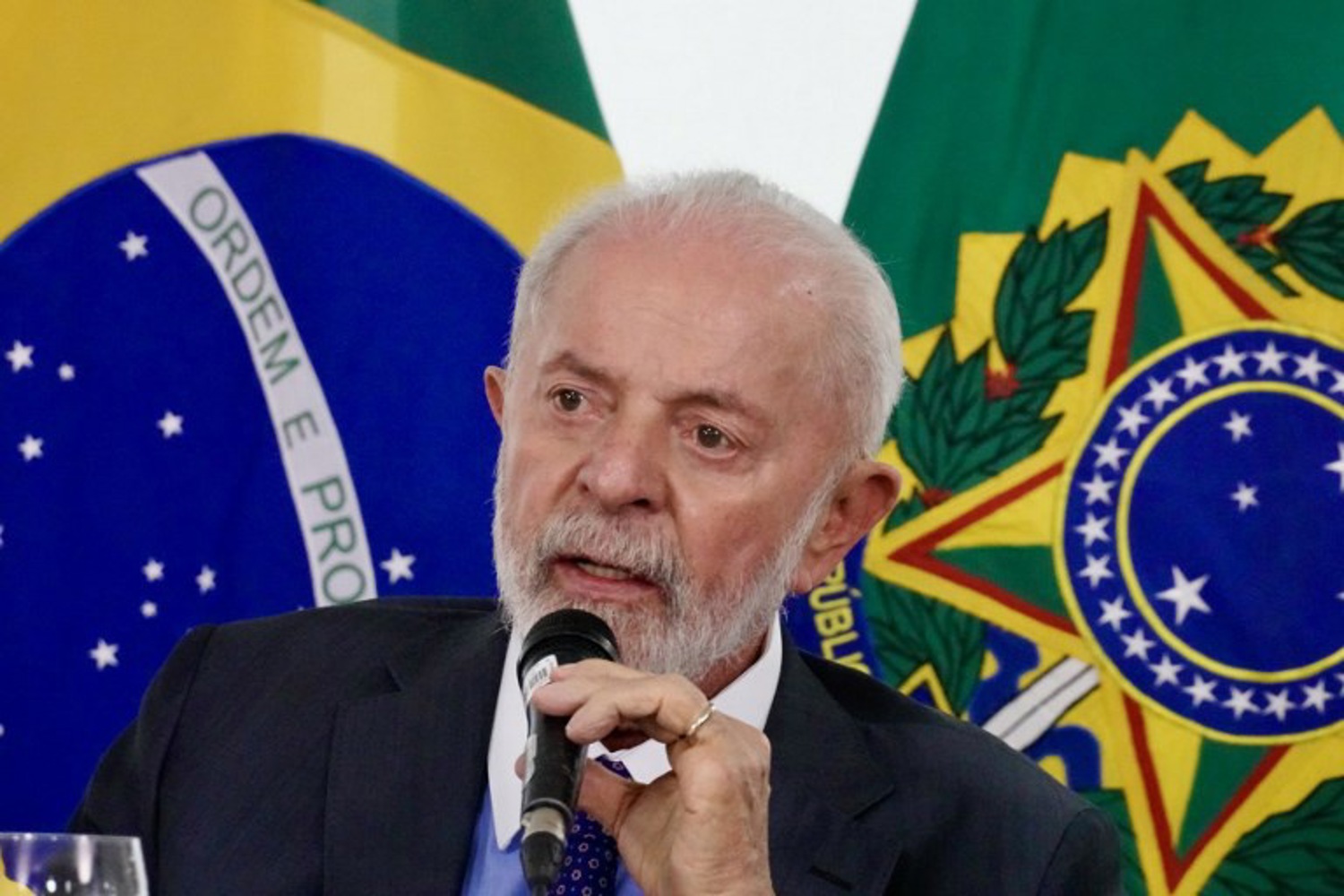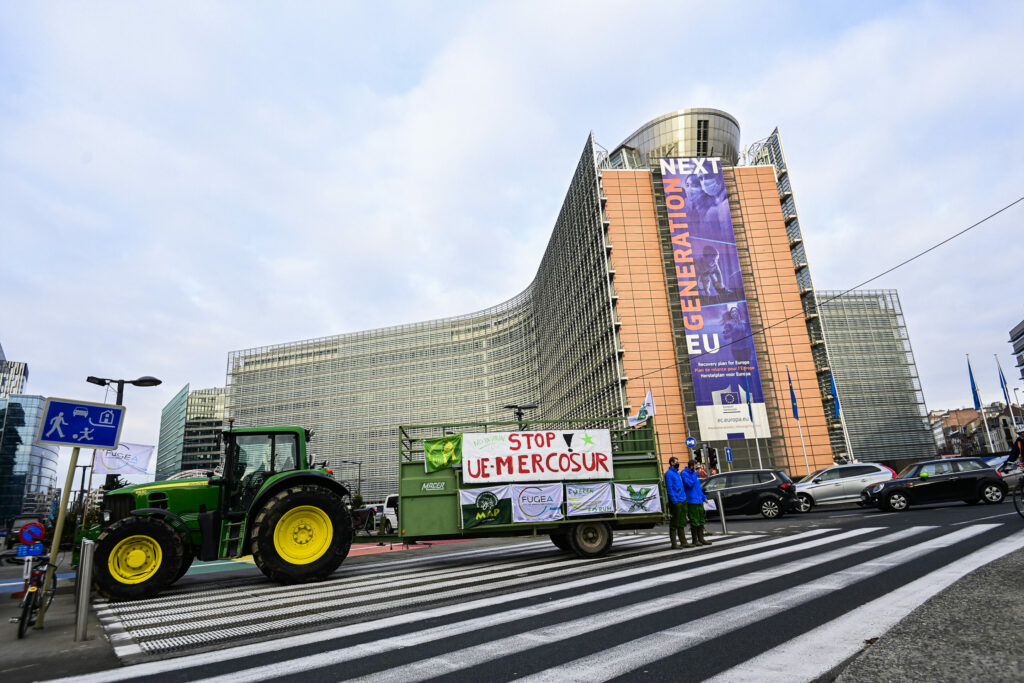After more than two decades of negotiating, the finish line for a historic trade deal between the EU and Mercosur countries in Latin America is "in sight", according to European Commission President Ursula von der Leyen.
Von der Leyen touched down in Uruguay on Thursday to meet leaders of the Mercosur bloc (Argentina, Brazil, Paraguay and Uruguay) at their annual two day summit.
It is expected that leaders from both sides will engage in key negotiations on Thursday and Friday, which could result in the signing of the EU-Mercosur trade agreement which will eradicate most trade tariffs between the two regions.
What's the deal?
The EU-Mercosur agreement aims to strengthen trade and investment between the two regions, most notably by cutting at least 90% of import tariffs on either side.
Trade is already strong between the two regions, and until now Mercosur is the only major trading partner in Latin America with which the EU does not have a trading agreement.

Princess Astrid of Belgium pictured during the seventh day of an economic mission to Brazil on Friday 29 November 2024. Credit: Belga / Dirk Waem
In 2023, the EU's exports to the four Mercosur countries amounted to €55.7 billion, while Mercosur's exports to the EU totalled €53.7 billion. Additionally, the EU exported €28.2 billion of services to Mercosur in 2022, while Mercosur exported €12.3 billion of services to the EU.
The European Commission has described the deal as a "win-win for both the EU and Mercosur", which will create opportunities on both sides for growth, jobs and sustainable development.
As well as lowering or removing tariffs, the deal also aims to remove other non-tariff barriers to trade, create more stable and predictable rules for trade and investment, and promote joint values such as sustainable development.
Who opposes the deal?
The deal has been strongly opposed by certain sectors, in particular farmers in the EU who are concerned about an influx of produce from Mercosur.
Protesting farmers in Belgium, France and elsewhere have warned that the increased competition from Mercosur imports would further threaten their already squeezed livelihoods, in particular as they fear that Mercosur competitors will not have to adhere to the same standards as EU farmers.

Farmers took the streets of the European quarters of Brussels city, in November 2024, for a protest action against the EU-Mercosur Trade Agreement. Credit: Belga/Nicolas Maeterlinck.
France is strongly opposed to the deal, with the French President's office stating on Thursday that the draft agreement is "unacceptable in its current form", and that President Macron communicated this to Commission President von der Leyen yesterday when she travelled to Latin America.
However, the Commission has said that Mercosur importers will have to "respect the EU high standards".
France has been trying to assemble a minority to block the deal, but outgoing federal agricultural minister David Clarinval has said Belgium will not help to hold up the agreement.
In a statement to The Brussels Times regarding opposition to the agreement by Belgian farmers, the office of Minister Clarinval said that Belgium has asked the European Commission to take measures to protect the agricultural sector.
"In May 2022, Minister Clarinval himself sent an official letter on behalf of Belgium to the European Commissioners for Trade and Agriculture on the impact of trade agreements on the agricultural sector. He particularly stressed our concerns about the impact on the European agricultural sector, and asked the Commission to honour its commitment to provide a compensation fund of €1 billion in the context of the agreement," said a spokesperson.
They added that the presence of binding mirror clauses, which would ensure farmers in both regions follow the same rules, would be crucial to Belgium supporting the agreement.
"As for all trade dossiers, Belgium will determine its official position in consultation with the regions on the basis of the final dossier that the Commission will submit to the Council. For the minister, the impact on sensitive agricultural sectors will of course be a crucial element in determining Belgium's position," they said.
Why now?
Negotiations to reach a trade deal between the EU and Mercosur have been trundling on since 1999, but gained renewed momentum in 2016 when the EU and Mercosur made new offers to cut tariffs. In 2019, the EU and Mercosur reached a political agreement to form a final trade agreement.
Since then, the pandemic and the invasion of Ukraine by Russia has put renewed emphasis on the need for the EU to diversify its supply chains.
Plus, the reelection of Brazilian President Luiz Inácio Lula da Silva in 2023 has opened a window of relative political peace to seal the deal, following years of tumultuous rule under right-wing Jair Bolsonaro.

Brazilian President Luiz Inacio Lula da Silva. Credit: Cadu Gomes / Brazilian Vice-Presidency / AFP
It also helps that France, one of the main opposers to the deal, is currently in political turmoil after the collapse of French Prime Minister Michel Barnier's short-lived government.
As she touched down in Latin America on Thursday, Commission President von der Leyen made a call to get the deal over the line.
"The finish line of the EU-Mercosur agreement is in sight. Let’s work, let’s cross it. We have the chance to create a market of 700 million people. The largest trade and investment partnership the world has ever seen. Both regions will benefit," she said in a post on Bluesky.
What happens next?
Even if the deal is signed this week, it does not mean that trade restrictions and tariffs between the two regions will instantly be lifted.
EU Member States need to approve the deal, and it could be blocked by a minority of at least four EU countries if they represent at least 35% of the EU's total population.
The deal will also have to be approved by the European Parliament.
Lauren Walker contributed to this article.

